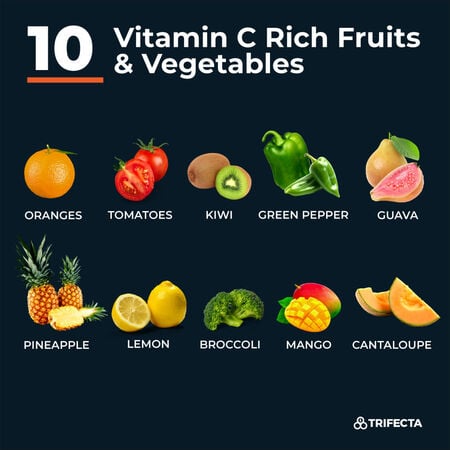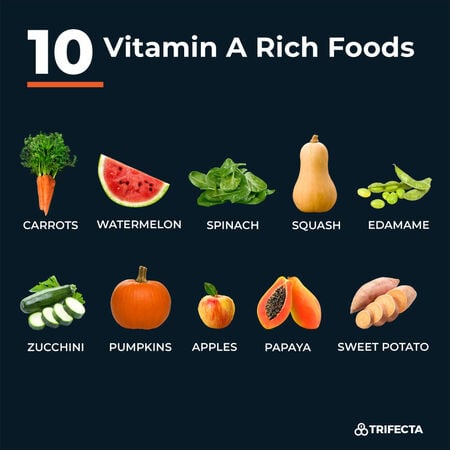Foods rich in antioxidants may have some the best health benefits out there, they help fight harmful free radicals and play a supportive role in our overall health and wellness.
Though we still need further research to determine the benefits of isolated antioxidants and supplements, you can still stock up on tasty whole-foods packed with nutrition for a balanced and colorful diet.
Here are 70 of these superfoods and details on how they can help your health.
What Are Antioxidants?
Antioxidants are substances that are thought to help prevent or delay some types of cell damage in your body. They are naturally present in fruits, vegetables, grains, and even algae.
Certain reactions in the body and exposure to toxins like smoke can create unstable substances called free radicals.
Free radicals and other harmful substances lead to oxidative stress, which is a process that causes cell damage.
Harmful effects from oxidative stress seems to be involved in many common chronic conditions such as diabetes, heart disease, cancer and Alzheimer’s disease.
It's important to note that the FDA only recognizes vitamins A, C, and E as antioxidants. For foods to be labeled "high in antioxidants" or "contain antioxidants" they must have 10% or more of the daily value of that nutrient.
The term antioxidants can be a bit confusing as it gets exchanged often with anti-inflammatory and photochemical, it's important to know the difference as many supplement companies use these terms interchangeably:
- Phytochemical: a classification of bioactive compounds derived from plant foods; some phytochemicals may act as antioxidants but play a variety of roles in body. There have been over 10,000 phytochemicals identified but a large percentage remain unknown.
- Antioxidants: types of phytochemical or nutrients known fight free radicals in the body and other reactive molecules known to contribute to chronic disease.
- Anti-Inflammatory: a term used to describe the properties of a phytochemical or antioxidant
Phytochemical is the broad umbrella term used to categorize most of these compounds, depending on the type of phytochemical it can act as antioxidant or anti-inflammatory or both!
Think of the terms anti-oxidant and anti-inflammatory as a way to describe how a chemical acts in the body.
At the end of the day, all of these may be beneficial to your health,
People who eat diets filled with super foods rich in antioxidants have a lower risk of suffering from many chronic conditions like heart disease and high blood pressure, and may even benefit from cancer prevention (1).
Do Antioxidants Have Health Benefits?
Antioxidants are thought to work towards reducing inflammation and damage in the body caused by oxidative stress.
Super Foods that are full of antioxidants are also rich in essential vitamins, minerals and other nutrients shown to boost our health by supporting our immunity and helping to prevent and treat many chronic diseases.
There is not enough scientific evidence to support the use of antioxidant supplementation in the prevention and treatment of chronic disease, but we do know eating a diet high in whole fruits and vegetables is rich in beneficial nutrients.
What the Science Says
Over the past years nutrition has taken the spot light in terms of being one of the top modifiable risk factors in preventing and treating chronic disease such as heart disease, diabetes, and cancer.
Unfortunately, it's hard to study the complex role phytochemicals and antioxidants within our diet may play in the development or treatment of chronic disease as a typical diet contains more than 25,000 bioactive substances (2).
Studying one specific antioxidant may be too narrow of a scope to determine if it alone provides health benefits, considering the pathology of chronic disease is multi-faceted. It also may be difficult for researchers to factor in that the plant variety, geographic region, growing season, and storage can all influence the concentration of phytochemicals and antioxidant levels within the food.
Some studies have shown that there were some risks to taking high doses of antioxidant supplements which warrants caution, and has created some controversy on their role in our heath (3).
A women's healthy study including almost 40,000 healthy women found that vitamin E supplements did not reduce the risk of heart attack, stroke, cancer, age-related macular degeneration, or cataracts (3).
What’s not controversial is that eating food naturally rich in antioxidants offer benefits in a multitude of ways, even though it’s unclear if the antioxidants themselves are responsible for the health benefits or other components of the food or factors such as people's lifestyle choices.
A diet rich in these superfoods has been shown to help prevent and treat a wide range of health conditions including a lower the risk of heart disease, cancers, stroke, cataracts and infections (3).
No matter what diet you follow whether it be keto, paleo, vegan, vegetarian, whole-foods or flexitarian; everyone can benefit from increasing their intake for whole fruits and vegetables, along with these antioxidant containing superfoods.
What Food Sources Are High In Antioxidants?
Incorporating plant based super foods that contain antioxidants like fruits and vegetables along with whole grains and lean protein in a balanced diet will provide you with the best support to both protect and fuel your body.
Below are some prime examples of foods enriched with antioxidants to start including in your meals.
- Dark Chocolate
- Oranges & Other Vitamin C Rich Foods
- Avocado & Other Vitamin E Rich Foods
- Tuna & Other Selenium Rich Foods
- Carrots & Other Carotenoids Foods
- Anthocyanin Rich Foods
Dark Chocolate
Chocolate is a favorite sweet treat is a good source of antioxidants known as flavanoids and other phenolic compounds. These come from the cocoa bean, which is a taken from the seed of the fruit of the cocoa tree.
But it’s easy for chocolate eating to quickly get out of hand. Eating more than sparing amounts leads to high calorie and sugar consumption that can cause weight gain and high glucose levels (4).
Bottom line: small amounts of dark chocolate may give you a health boost but negative effects of larger quantities can outweigh any benefits.
10 Vitamin C Rich Fruits and Vegetables

Vitamin C is arguably the most well known antioxidant.
It helps to support your immune system, vision and is important in wound healing as well as tissue repair. It has also been shown to have a regenerative effect on other antioxidants in the body including vitamin E (5).
- Oranges
- Tomatoes
- Kiwi
- Green Peppers
- Guava
- Pineapples
- Lemons
- Broccoli
- Mangos
- Cantaloupe
10 Vitamin E Pantry Staples
Vitamin E works as an antioxidant, in addition to supporting our immune system, blood vessels and vision.
- Sunflower Seeds
- Almonds
- Peanut Butter
- Tomatoes
- Pinenuts
- Apricots
- Seaweed
- Avocado
- Soymilk
- Acai
10 Selenium Rich Foods
Selenium is an important element mostly found in meat and has an important role in thyroid function (6).
- Brazil Nuts
- Tuna
- Halibut
- Sardines
- Ham
- Shrimp
- Beef
- Chicken
- Cottage Cheese
- Eggs
Carrots & Carotenoids
Carotenoids are another category of antioxidants that are theorized to have a variety of health benefits. Over 600 of these carotenoids have been identified in foods (7) .
Among these, beta-carotene is considered the most important pro-vitamin A carotenoid. The body is able to make vitamin A out of these beta-carotene as well as other provitamin A carotenoids like alpha-carotene and beta-cryptoxanthin (8, 9).

10 Beta-Carotene Foods
- Carrots
- Sweet Potatoes
- Squash
- Peppers
- Kale
- Apricot
- Spinach
- Peas
- Squash
- Cantaloupe
Other well known carotenoids that are not converted into vitamin A but are still thought to have powerful antioxidant effects include lycopene, lutein and zeaxanthin (10).
10 Healthy Lycopene Foods
- Guavas
- Bell Peppers
- Cabbage
- Tomato
- Grapefruit
- Persimmon
- Mangos
- Papaya
- Watermelon
10 Lutein and Zeaxanthin
- Spinach
- Collard Greens
- Turnip
- Kale
- Peas
- Squash
- Parsley
- Zucchini
- Edamame
- Pumpkin
10 Anthocyanin Rich Foods
Anthocyanins are rich in foods that appear blue, red or purple, they are also found in the flowers and fruits of many other plants! They are a subclass of phytochemicals that may provide protection against heart disease, cancer, and diabetes (11,12).
- Apple, Red Delicious
- Bilberry
- Black Currant
- Black Olives
- Blackberry
- Blueberry
- Cherry
- Chokeberry
- Cranberry
- Elderberry
The Top 10 Antioxidant Dense Herbs & Spices
The American Journal of Clinical Nutrition released a list of the top 50 healthy super foods with thought to have the most concentrated antioxidants (11). Don't be surprised that the top 10 are herbs, spices, and nuts.
- Ground Cloves
- Oregano Leaf
- Ground Ginger
- Ground Cinnamon
- Tumeric Powder
- Walnuts
- Basil Leaf
- Yellow Mustard Seed
- Curry Powder
- Pecans
Chocolate was actually listed as the 11th most antioxidant rich item!
Should You Take Antioxidant Supplements?
Science supports that eating antioxidants found naturally as part of food are good for you in all sorts of ways. So, it may seem to make sense to assume that antioxidant supplements would also be good for you.
Many animal studies and lab experiments demonstrate isolated antioxidant supplements improve oxidative stress, possibly in part by neutralizing some of these free radicals and thus preventing them from doing harm.
But because these successful outcomes were from test tubes and animals, the big question is if benefits are also seen when these supplements are studied in people.
So far scientists have found our eyes may see the biggest benefit. A combination of antioxidant supplements of vitamin C, vitamin E and beta-carotene in humans lowered the risk of vision problems (specifically macular degeneration) by 17% which further increased to 25% when zinc was added as an additional supplement.
Further research suggested that two other carotenoids called lutein and zeaxanthin may offer some additional benefit in certain circumstances.
Can Supplements Be Harmful?
While positive effects were found on vision, some antioxidants may be harmful mostly due to the lack of regulations on the supplement industry.
Some of these antioxidant supplements sold in the stores are not approved by the FDA and some can interact with medications and causing dangerous complications (12). Because antioxidants can be considered a 'food or nutrient supplement' and not a 'drug' they are not as heavily regulated.
It is also important to note that confounding factors to the effects seen - ie: people who eat foods rich in antioxidants are also more likely to have other healthy lifestyle choices and be of a healthy weight that leads to lower risks of chronic diseases observed.
Alternatively, the antioxidant activity in the body may be more effective when eaten in their natural form.
At the end of the day, more research certainly needs to be done for scientists to discern the details on antioxidant benefits (13).
More of a good thing isn’t always better. Science shows that taking too many supplements can be harmful. Eating a well-rounded diet rich in whole-foods is the best way to get all of the antioxidant goodness your body needs.
Want to make switching to a nutritious whole food lifestyle even easier? Have our team of experts plan, cook, and ship a healthy meal plan to your door each week. All meals are made by hand and delivered fresh for optimal taste, nutrition, and convenience!
